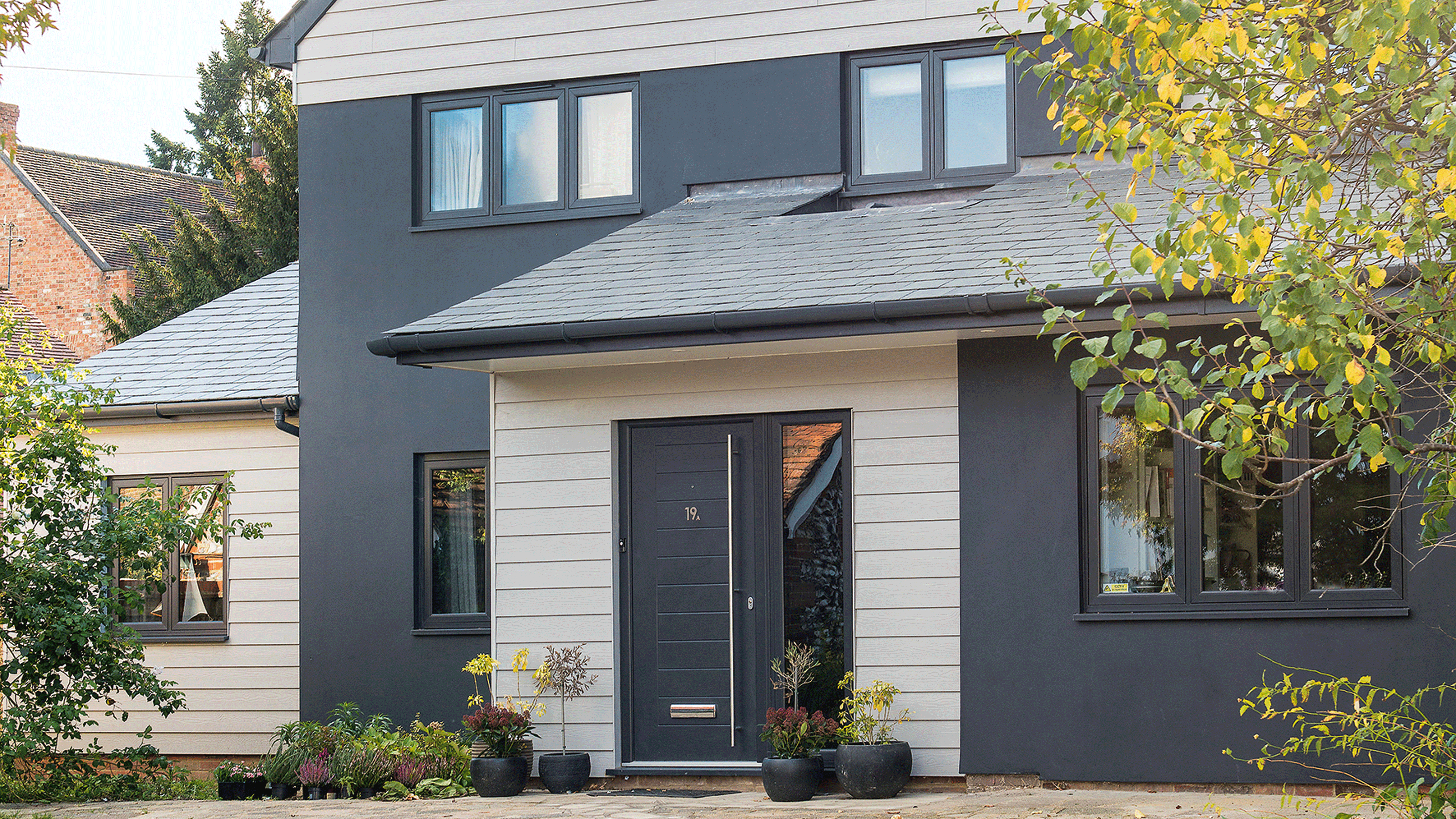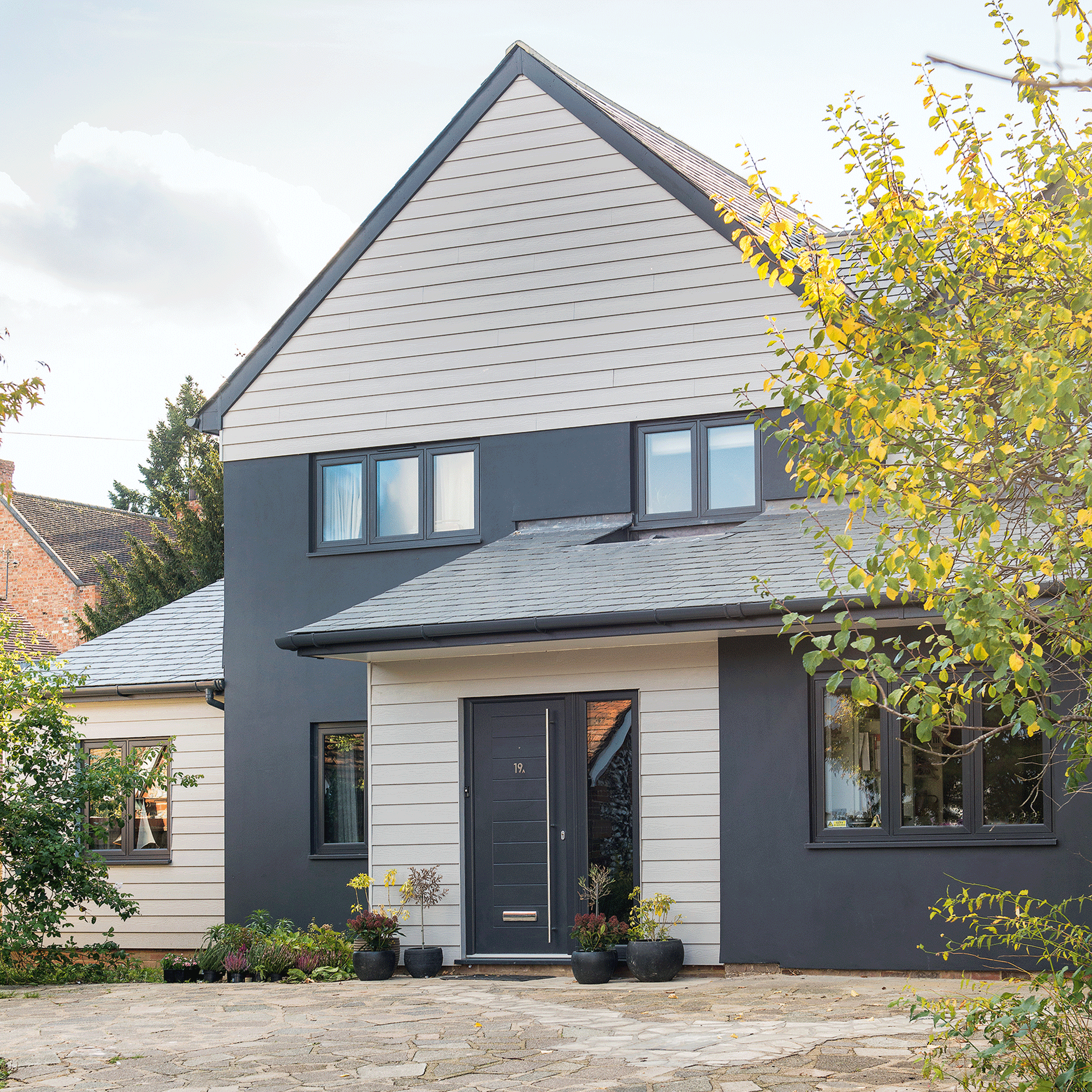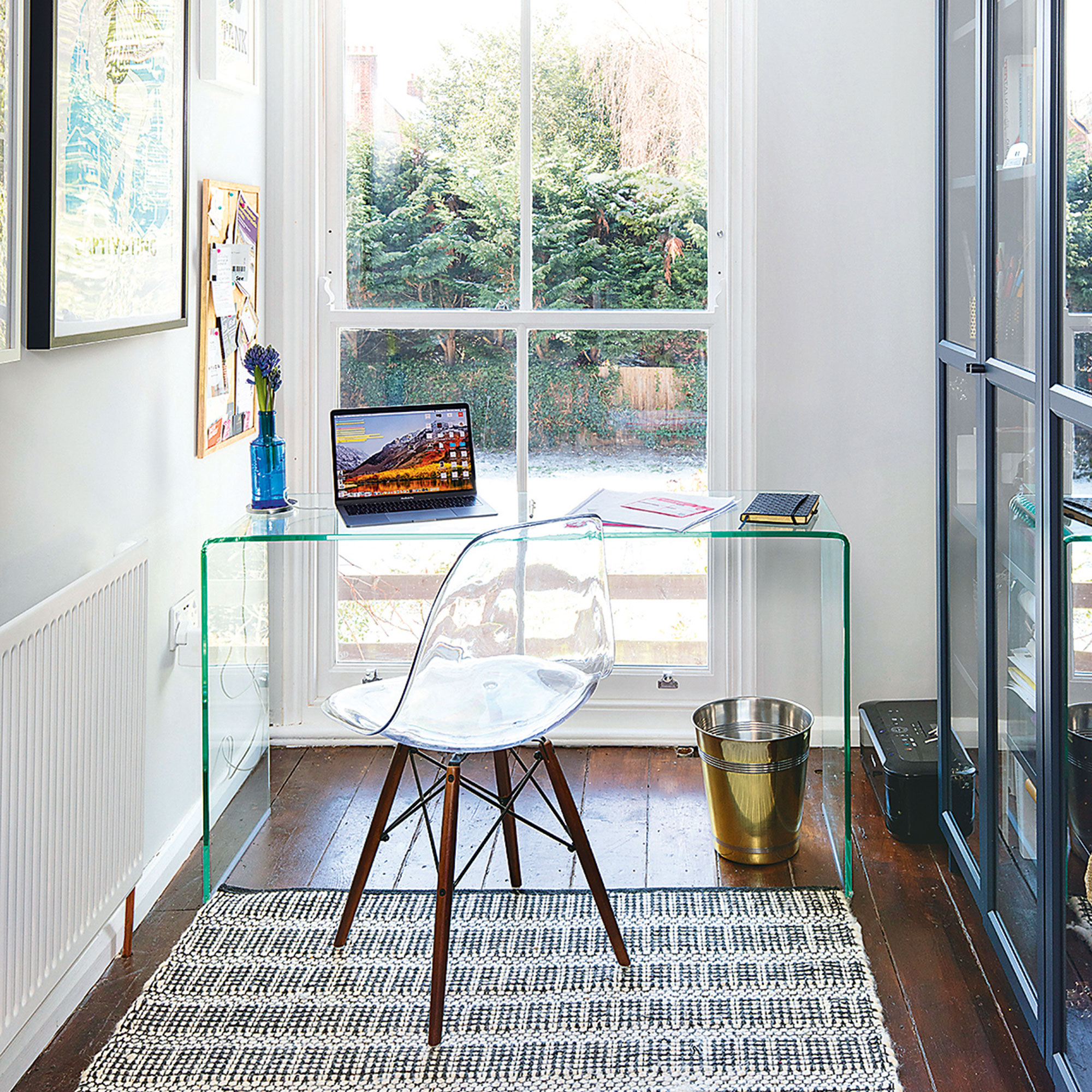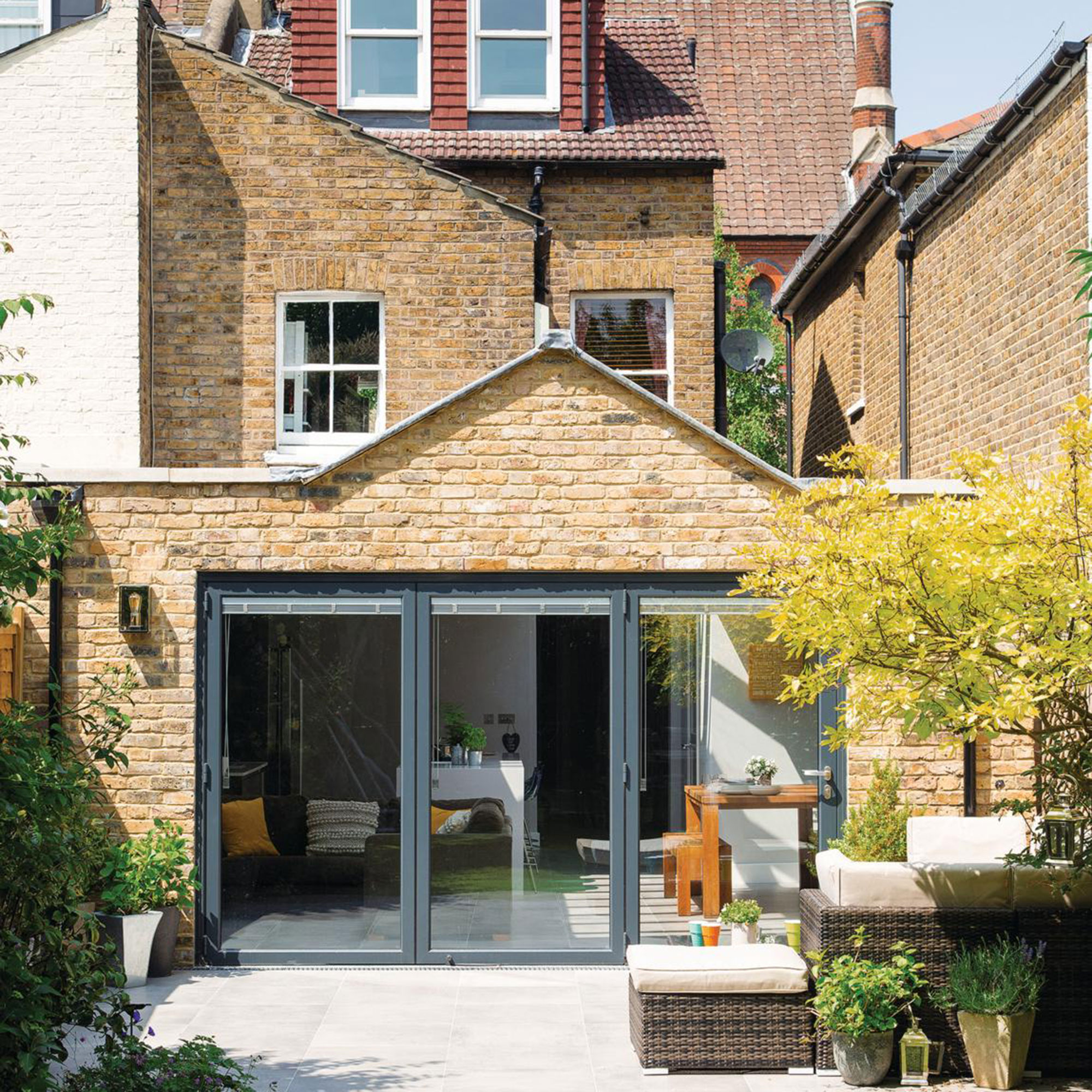Is now a good time to buy a house or not? What you need to know
Is now a good time to buy a house as property prices decline and mortgage rates have fallen back from their autumn peak?

Sign up to our newsletter for style inspiration, real homes, project and garden advice and shopping know-how
You are now subscribed
Your newsletter sign-up was successful
This article has been updated to reflect the latest base rate announcement.
House prices fell by more than 3% in the year to March, so is now a good time to buy a house?
The fall in house prices is currently small and according to experts a house price crash is not on the cards. But forecasts of how much house prices will decline range from 5% to 10% by the end of the year.
Buyers may well have had their buying power curtailed as mortgage rates more than doubled in a short space of time, but they can now bargain over the asking price of a property because there is less competition for homes in the market.
'After so much volatility around mortgage rates, it's unsurprising that potential home movers are unsure whether now is a good time to move or whether they should wait in the hopes of more stability,' says Money Editor Sarah Handley.

Sarah is an experienced journalist and editor with more than 10 years of experience in the Homes industry.
As well as being Ideal Homes' Money Editor, where she focuses on property-related finance, she is also Money Editor for our sister site Goodto.com, where she focuses on family finance. She is passionate about helping people cut through confusing jargon to understand how best to save, manage and spend their money, while setting themselves up for a financially stable future.
Is now a good time to buy a house?
Let’s look at the pros and cons of buying a house right now.
Pros
- Buyers could get a discount off the property asking price. Given the volatility of the economy, higher mortgage rates and the ongoing cost of living crisis, home buying demand is 43% down on the same period last year, according to Zoopla. That means properties are taking longer to sell and with fewer offers, buyers are getting on average a 4% discount off asking prices.
- Fixed rates have fallen. In a reversal of the trend seen in over the last six months, fixed rates are now better value than discounted and tracker mortgage rates.
Discount and tracker deals have continued to rise with subsequent Bank of England base rate increases, while fixed rates have fallen. 'We’re seeing average fixed rates inch down on a weekly basis which is good to see because it means mortgage rates across the board are falling, not just the headline grabbing rates that lenders offer for a short time to those with the biggest deposits,' explains Chris Sykes, technical director of mortgage broker Private Finance.
'Even high loan to value rates have started to fall. Low deposit borrowers are now only paying around a 1% premium on the best rates in the market and can access of five-year fixed rate of less than 5%.'

Cons
- Risk of negative equity. If you’ve made an offer on a house in the last six months, and you’ve yet to complete the transaction there is a small chance you could end up in negative equity if you’re buying your home with a 5% to 10% deposit.
That’s because house prices are forecast to fall by up to 10% by the end of the year which means your home may be worth less than the value of your mortgage. For example, if you buy a home with a 5% deposit and your house falls in value by 10% soon after, you would be in negative equity.
If you sell while in negative equity, you would have to pay the mortgage shortfall. However, experts predict prices will begin to modestly rise again from 2024. - Loss of Help to Buy. The Help to Buy scheme, a lifeline for many first-time buyers, has closed to new applications which means those who need an extra step up onto the property ladder will no longer have the assistance of the government scheme. Shared ownership schemes remain available.
Should I pull out of a property purchase?
Whether you pull out of a property purchase or not will depend on your circumstances. If your job is in jeopardy, you’ve suffered a loss of income or there are other reasons impacting your ability to move then pulling out could be the right decision.
Sign up to our newsletter for style inspiration, real homes, project and garden advice and shopping know-how
But if it’s a knee-jerk because you’re worried about a house price crash, Mal McCallion, COO of comparison site GetAgent.co.uk, says buyers should not pull out.
'If you’re like most people – buying a property to live in rather than as a pure investment, you’re not likely to feel any of the fluctuations of the property market. The general rule is that within five years of any purchase, the property will always be worth more than it was when bought.'

'If the house is right – then it’s right,' advises Mal. 'And you shouldn’t let anybody without specific knowledge of your personal circumstances tell you to pull out of a purchase and potentially lose your dream home.'
Buyers can pull out without facing a financial penalty up until the point they sign and exchange contracts with the seller. If the buyer pulls out after exchange, the seller can keep their deposit and claim for damages. If you pull out before exchange you’ll lose any money you have paid out such as surveyor and solicitor fees.
Are house prices going up or down?
Between the start of the pandemic and the autumn of 2022, house prices across the country rose on average by 25%. But the trend of runaway house price growth has come to an end and prices are now in reverse.
Nationwide reported that house prices fell by 3.1% in the 12 months to March and Zoopla expects that by the end of the year, house prices will have dropped by 5%.
Estate agent Savills is forecasting a 10% decline this year, but a 1% increase in 2024. Rival agent Knight Frank also predicts a 10% decline, but it says this will occur over the next two years.
House prices are falling because buyers’ budgets continue to be squeezed by high inflation which remains above 10%. Although mortgage rates have eased back from their October highs, for many – they still face a mortgage rate twice as high as previous years.
The Bank of England says it expects inflation to start falling sharply from the middle of this year which should provide some relief to household budgets and limit the number of future base rate rises.
What will happen to mortgage rates?
After the latest interest rate rise by the Bank of England, the base rate now stands at 4.5%. The continued increase of the base rate has driven up the cost of variable rate mortgages.
Tracker mortgages are directly linked to the central bank rate, for example, the tracker mortgage rate might be ‘Bank of England base rate + 1%’ which would mean the borrower pays 5.5%. If the base rate rises, the tracker deal rises too.
Discounted mortgage rates have also risen. A discounted mortgage means the lender is offering a discount off its standard variable rate – the lender’s default rate the borrower moves onto when their deal expires. Standard variable rates are influenced by the base rate, although they are not directly connected.

If the base rate goes up again, tracker and discount mortgage deals will follow suit.
Fixed rates, however, have been falling gradually over the last six months. But the reductions are likely to go on pause in the coming weeks and months and fixed rates may even rise slightly, says mortgage broker Chris from Private Finance.
'Interest rates at which mortgage lenders borrow money, known as swap rates, have increased over the last two weeks,' adds Chris. 'They have increased again marginally following higher than expected inflation in the 12 months to March and the prospect of another base rate rise next month.'
However, Chris says if lenders do decide to pass on rate increases, the rises are likely to be small.
Is now a good time to sell my house?
Households considering selling their home may be hesitant amid talks of house price falls. However, there is still a lack of homes available to buy which experts say will prevent house prices from falling too far.
Although demand is 43% lower than it was in April last year, it’s still 16% higher than the same period in 2019 before the pandemic skewed the market. That means there are still buyers in the market, however, sellers are being warned to price their homes realistically if they are serious about moving.
What factors should be considered before you buy a house or sell your own?
Before you decide to buy or sell your home – consider why you made the decision in the first place. If it’s still valid, say experts, stick to it.
'Anyone looking to move in the current climate should be clear about why they’re doing so,' says GetAgent.co.uk’s Mal.
'If it’s to downsize and save some money on heating, for example, then there are more properties available now than there have been in quite a while so you should be able to find a perfect match.'
'If it’s to support a growing family then there are plenty of opportunities out there right now that weren’t there last year - probably in the school catchment areas that might otherwise have been out of reach.'
Samantha Partington is a personal finance journalist specialising in mortgages and the property market.
Over the past nine years, Samantha has worked for the Daily Mail, trade website Mortgage Solutions and business title Property Week. She regularly writes for national money pages including Money Mail and Sun Money and supports prop tech firms with content writing.